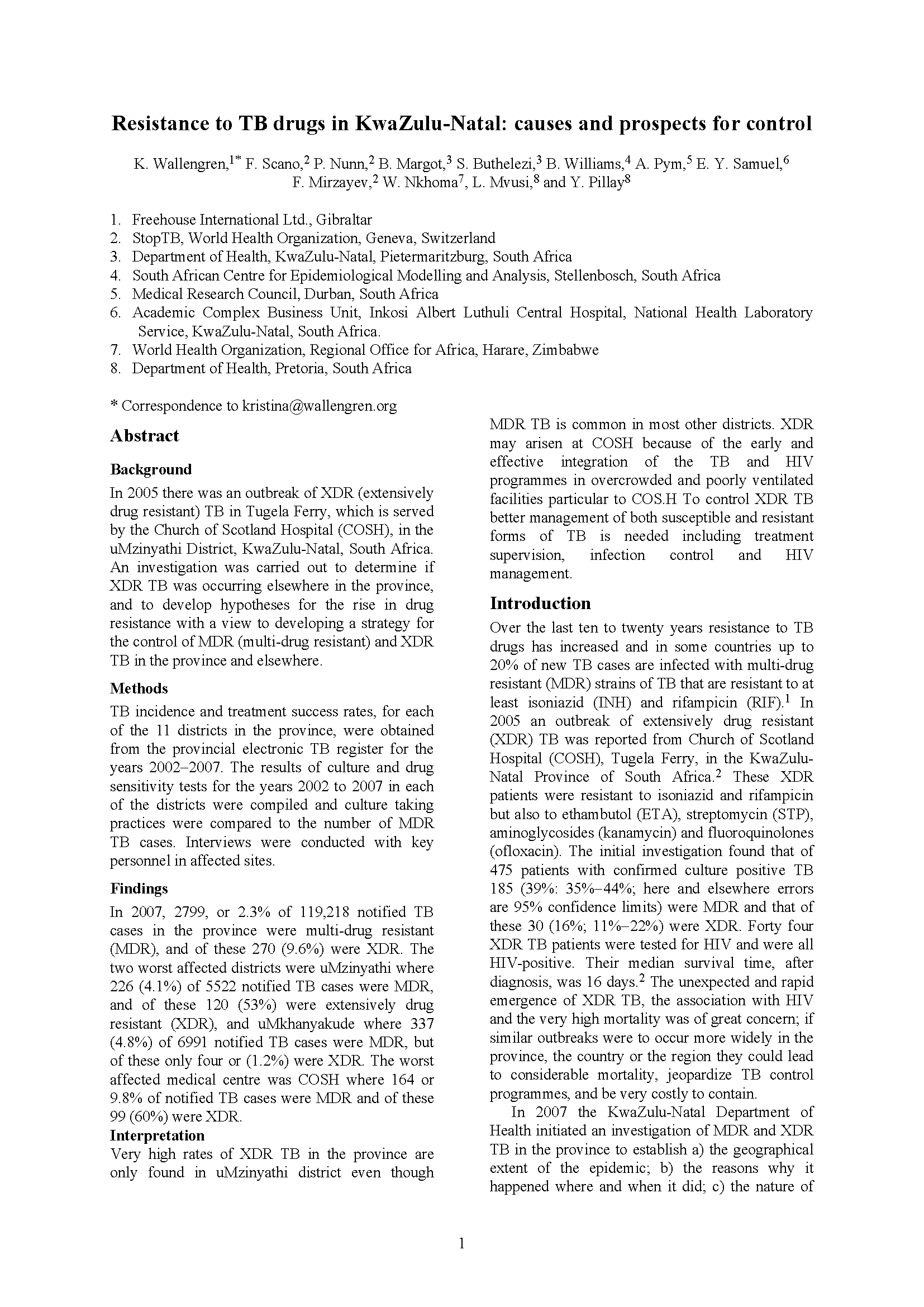Date: 9 July 2011
Authors: Wallengren,1* F. Scano,2 P. Nunn,2 B. Margot,3 S. Buthelezi,3 B. Williams,4 A. Pym,5 E. Y. Samuel,6 F. Mirzayev,2 W. Nkhoma7, L. Mvusi,8 and Y. Pillay8
Abstract:
Background: In 2005 there was an outbreak of XDR (extensively drug resistant) TB in Tugela Ferry, which is served by the Church of Scotland Hospital (COSH), in the uMzinyathi District, KwaZulu-Natal, South Africa. An investigation was carried out to determine if XDR TB was occurring elsewhere in the province, and to develop hypotheses for the rise in drug resistance with a view to developing a strategy for the control of MDR (multi-drug resistant) and XDR TB in the province and elsewhere.
Methods: TB incidence and treatment success rates, for each of the 11 districts in the province, were obtained from the provincial electronic TB register for the years 2002−2007. The results of culture and drug sensitivity tests for the years 2002 to 2007 in each of the districts were compiled and culture taking practices were compared to the number of MDR TB cases. Interviews were conducted with key personnel in affected sites.
Findings: In 2007, 2799, or 2.3% of 119,218 notified TB cases in the province were multi-drug resistant (MDR), and of these 270 (9.6%) were XDR. The two worst affected districts were uMzinyathi where 226 (4.1%) of 5522 notified TB cases were MDR, and of these 120 (53%) were extensively drug resistant (XDR), and uMkhanyakude where 337 (4.8%) of 6991 notified TB cases were MDR, but of these only four or (1.2%) were XDR. The worst affected medical centre was COSH where 164 or 9.8% of notified TB cases were MDR and of these 99 (60%) were XDR.
Interpretation: Very high rates of XDR TB in the province are only found in uMzinyathi district even though MDR TB is common in most other districts. XDR may arisen at COSH because of the early and effective integration of the TB and HIV programmes in overcrowded and poorly ventilated facilities particular to COS.H To control XDR TB better management of both susceptible and resistant forms of TB is needed including treatment supervision, infection control and HIV management.
Affiliations:
1. Freehouse International Ltd., Gibraltar
2. StopTB, World Health Organization, Geneva, Switzerland
3. Department of Health, KwaZulu-Natal, Pietermaritzburg, South Africa
4. South African Centre for Epidemiological Modelling and Analysis, Stellenbosch, South Africa
5. Medical Research Council, Durban, South Africa
6. Academic Complex Business Unit, Inkosi Albert Luthuli Central Hospital, National Health Laboratory Service, KwaZulu-Natal, South Africa.
7. World Health Organization, Regional Office for Africa, Harare, Zimbabwe
8. Department of Health, Pretoria, South Africa

